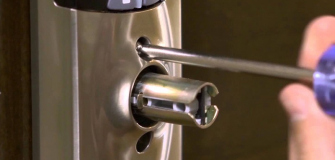6 Therapeutic Side Effects Of Housecleaning
Share

How many of us like to clean up? No, not to be in a clean room, but to put things in order – to tidy up. It turns out that the cleaning process itself can become a valuable psychotherapeutic tool for a person, from which he can draw on the resource for peace and harmony in life.
Cleaning as a method of treating neuroses is based on the basics of occupational therapy. For example, in America, occupational therapy is included in the official rehabilitation course for the mentally ill: vegetable gardens near hospitals, cafés, etc. Experience shows that occupational therapy can be a powerful adaptation tool for returning a patient to normal life. True, there are some features of effective occupational therapy:
Work must match the skills of the patient.
There must be good motivation for the patients from the outset.
Lack of compulsion to work: the patient himself wants to engage in occupational therapy.
The patient must see the result.
That’s how it is with the mentally ill.
But, nothing prevents healthy people from using the therapeutic possibilities of occupational therapy. One of the most accessible types of work is CLEANING.
Cleaning does not require any special training.
It’s easy enough to motivate yourself to clean up as a therapy for stress and depression.
Artificial compulsion to clean can always be replaced by an internal desire for cleanliness, calming the nerves, and physical activity.
Cleaning gives a quick result, when we do it slowly, with pleasure.
What needs to be done for cleaning to become a therapeutic psychotherapeutic tool?
1. Break the old negative associations with cleaning.
If, for example, when you were a child, your mother used to be mad while cleaning, saying that it is too hard, you will probably think of cleaning as something sad and negative. Kids often adopt the patterns of their parents. But if you want to get the pacifying benefits of cleaning, turn on the music, think that you will now be engaged in the harmonisation of mental processes and consciously move towards cleanliness.
2. Don’t set your goals too big.
There is no need to clean the whole house, exhausting yourself physically, if you do not have the strength or time to do so. Focus on a small area. For example, it can be a desktop or an area of 30X30 cm. Again, think about decluttering, neat stacking and other actions, consciously. After that, you will want to do a lot more, and the strength will appear.
3. Record the result.
If you compare the condition of a part of an apartment / any object before and after cleaning, you will watch with satisfaction how the dirty becomes clean. This way you can easily get a considerable psychological resource. This can also give you motivation to continue.
4. Use the 4 senses for therapy.
1) The sight rejoices – the dirty has become clean.
2) The sense of smell is happy – a fresh smell of a room without dust, clean clothes, or a pleasant smell of a household product.
3) We can please the ear with pleasant music or our own singing.
4) Enjoy the tactile sensation of clean surfaces. Analyse where it is smooth, where the texture is, what it feels like.
A temporary concentration on the simplest feelings, as it were, returns us to a carefree childhood (we learn this from children – how they listen, taste, smell, touch) and the state of “here and now”, a periodic reverse into which is extremely necessary for every person for health – mental and somatic.
5. Make sure to neutralise anger by cleaning.
Some psychologists recommend splashing out negative emotions during cleaning: when you are angry, put a rag in your hands and wash everything. Perhaps this will have a temporary effect. But in the long run, such actions can take away the desired association with calmness in cleaning occupational therapy. Therefore, we do not recommend getting involved in this kind of “washing away” irritation, although sometimes it is really effective and safe for others. If you take a rag in your hand in a calm state, and suddenly you feel the desire for anger as a motivating force, then you should stop the practice of dealing with negativity through cleaning. Introspection is the best indicator here.
6. Structure your brain.
Through external processes, we sometimes get to know the inner structure of thinking and our soul. We need analogies all the time. When we neatly stack laundry, office supplies, and other items into piles, we help the brain to more easily “sort through” thoughts.
“Unhealthy cleaning”
It is also necessary to mention the unhealthy passion for cleanliness, the so-called pathological cleanliness. A good deed should be in moderation. There are quite a few people who go over the line in their pursuit of cleanliness. They are pure-minded. Such people mostly enjoy not the cleaning process, but the result. The reasons for excessive cleanliness are different – the pathological fear of microbes (mostly), and some early psychological trauma. It is possible that it will not be possible to do without the help of a psychologist, since people with this kind of disorder torture themselves with a thirst for cleanliness around, making it almost the goal of existence. This is a clear bias that interferes with a normal life for the most dependent on cleanliness and their loved ones.
Professional help
However, in some situations it is quite normal that we have no desire to clean, and yet the house must be tidy. In such situations, it is better to seek professional help. In cases when you need end of lease cleaning, or emergency cleaning because the guests are coming, professionals can come to your rescue.
Kids and cleaning
Instil in your kids a healthy, positive attitude towards cleaning and ordering, and you will see how this will boost their self-confidence. Getting pleasure in the right way will be the prevention of unhealthy addictions in the future.
When cleaning becomes a means of psychotherapy, people cease to be annoyed with children who have spilled something. After all, this is a reason to pick up a rag again and get your resource of the right pleasure (let’s not be afraid of these words). Our world of civilisation has turned many things upside down. We try to enjoy unnatural things, while joy and healthy pleasure are so close to us.
Conclusion
As you can see, cleaning, which you may have considered a tedious and difficult task until now, can have therapeutic properties and help you. Be sure to look at things from a different perspective, adjust them to yourself so that they bring you only positive feelings. This of course also applies to the cleaning process.











